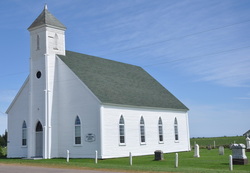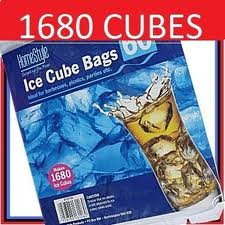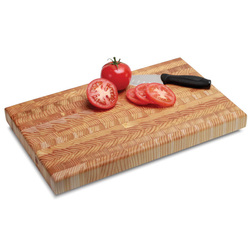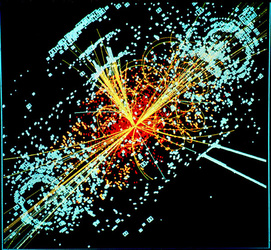
Although the little white country churches are a dime a dozen, in general, the places of worship here model the considerably more conservative mindset of the Island way. That attractive, small town feel that seems “charming” in day-to-day summer living on the island, can seem at times oppressive and narrowminded from the perspective of those sitting in the church pews on a Sunday morning, especially if one is used to the more liberal approach of a pastor who examines the scriptures from the critical lens commensurate with a large and diverse urban centre like Toronto.
But towards the end of last summer, our PEI “church shopping” mission paid off, and we located a mid-sized United church in the heart of Charlottetown, with just the right blend of tradition and liberalism. The pastor (who it turns out is a contemporary of Brent Hawkes’ at MCCT) is at once a model of PEI gentleness, welcoming and kind towards children and adults alike, yet also a leader of his flock in examining the Book in a way that is strong, unapologetic, and – by PEI standards in our experience – rather openminded.
On a recent Sunday, we had the privilege of listening to him speak on the Christian perspective of a wants- vs needs-driven economy.
Not necessarily a new concept, but one which Christians in particular should examine regularly and hold themselves accountable about, he spoke of the Advertising industry's endeavour to create a need for things we never knew we "needed". (I immediately found illustrations in the supermarket when we went grocery shopping later that day, where I stumbled across ice-makers in a bag, several enticing brands of cookies, and a fancy new cutting board, all of which I was convinced we needed back at the house, until I forced myself to examine each item more closely and realise that in fact the world would not stop turning if I didn’t purchase these items!)
Our pastor pointed out that in making the claims that Christ does in this passage, he was confirming for his followers of the day that “to be involved with Jesus is to be involved with someone counter cultural”: Food (and often, lack thereof) played a major part in human day-to-day "business" at that time in history (Indeed, it continues to do so in many parts of the world still, and interestingly, today’s North American main-stream society continues to be consumed with the process of buying, preparing and eating food, even where it exists in abundance, and not necessarily in nutritionally valuable measure—witness the “super-size me” processed food culture in which so many of us find ourselves entrenched!)
Historically, physical bread has played a key role in religions of all kinds. (Take, for example, the illustrations of Sikh anti-caste meal sharing, Christian Communion, Muslim Halal and Jewish Kosher foods). Apart from the fact that people were just hungry and needed to eat in order to sustain themselves physically, this actual “bread” was shrouded in rules and rituals. Now along came this man, Jesus, who spoke of a spiritual bread, a “bread of life” that was somehow not the physical sustenance that played such a major role in people’s lives then as it continues to today, but rather “a food that endures to eternal life”. (v 27)
Was/is this “bread of life” something we need? Or something we want? Or both?
What Jesus was demanding of people in John 6 was in essence that they challenge themselves with the ultimate question about materialism:
Are we more than simply physical beings?
It is a question that continues to percolate in the minds of many today as they examine what it is to interact with the "bread of life", while others continue, seemingly oblivious, to consume their manna like crackers out of a box on sale at the local grocery store.
This spiritual quest to push beyond the “material” manifests itself not only inside churches, mosques and other places of worship, but in the secular world as well: I am reminded of two people I know who like to read bits and pieces on their mobile devices: One enjoys Discovery Magazine’s App, which informs the reader of recent developments in the scientific community. The other prefers to ingest snippets from websites like Facebook, enjoying such engaging tidbits as new, bacon-coloured nail enamel.
Considering bacon nail polish vs the discovery of the God gene inevitably forces one to ponder that age-old question, “What is the point of all this which is ultimately lost?” (More commonly referred to as “you can't take it with you”.) Which do we “need” more, the information about how to fancify one’s fingernails, or the emerging discovieries and theories on the formation of the universe?
Jesus, in his passage pronouncing himself as “the Bread of Life”, forces us to ask ourselves this question: How will we prepare for the afterlife? How will we nourish our souls in such a way that we will not starve? As he notes in verse 27 of John 6, “Do not work for food that spoils, but for food that endures”.
Even if one doesn’t believe in life after death, surely one must agree that a life spent in thoughtful, perhaps communal, breaking of bread, both physical and spiritual, is of more intrinsic value than one spent stuffing oneself with fast food while racing from one distraction to the next. From a purely practical perspective, one set of choices leaves the world we inhabit for a short time in better stead for its next inhabitants (often our own biological children) than the other. Focussing on our needs, or "streamlining", rather than fulfilling our ever-perishable wants, seems to me the more environmentally sound choice (and one which I myself am often guilty of not making!)
It amazes me that some people seem to drift through life without ever considering the call to draw near to the Bread of Life. How can one resist Jesus’ invitation to come to Him, when the invitation is so welcoming? “Everyone who looks to the Son and believes in him shall have eternal life.” (v 40)
When Christ notes in apparently contradictory fashion later in the passage (v 44) that “no one can come to [Him] unless the Father draws them”, the temptation may arise to consider a more Calvinist approach to Christianity, as our PEI pastor pointed out in his sermon that Sunday morning. "Autonomy” vs predestination is a theme that concerns atheists and believers alike.
It seems to me, though, that this passage serves as an illustration of God’s universal love and compassion: He *does* draw all of us, but because we are imbued with the will to choose, some of us will choose not to follow. Both the bacon-themed nail polish, and the news on the discovery of the God particle compell us to take notice. But which will we choose to expend our energy? Which will we think about, forward to friends and family, discuss with others... which will change how we live our lives?
The great tragedy of life, in my opinion, is that rather than eat regular meals of the much-needed bread of life, many of us continue instead to succumb to our wants, and consume the junk food of the world.
Although the concepts of the sermon in question were not particularly new or difficult to comprehend, they challenged me to consider how I spend my time and mental energy, and I am grateful for it.







 RSS Feed
RSS Feed